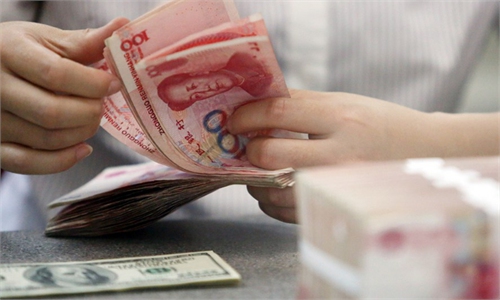China further regulates stock market holding cuts, closing indirect reductions loopholes

China Securities Regulatory Commission (CSRC) in Beijing Photo:VCG
China's securities regulator issued rules on Friday to improve regulations on reducing holdings in the stock market, closing loopholes that have allowed major shareholders to make irregulated and indirect cuts to their holdings.The new regulations, widely viewed as the most stringent rules on holding cuts for major shareholders in the A-share market, are anticipated to effectively address and rectify unfair and detrimental arbitrage practices, according to experts.
The China Securities Regulatory Commission (CSRC) released the rules for reducing holdings by shareholders of listed companies on Friday. The new regulation, which had been open for public comment for a month and a half, took effect from the date of publication.
The rules, applicable to major shareholders of listed companies, namely shareholders holding more than 5 percent of the shares, as well as the actual controllers, including other senior executives, close loopholes on avoiding regulation through changing identity, trading methods, and tools.
Major shareholders shall not make holding cuts on restricted shares through divorce, short sells, or other irregulated ways, according to CSRC regulation.
Major shareholders are not allowed to reduce their holdings through block trading or centralized bidding when the share prices fall below net asset value per share, or fail to meet dividend standards. Major shareholders are required to make pre-disclosure before holding cuts, read the CSRC notice.
The new rules are expected to further regulate the behavior of major shareholders in reducing their holdings, and are feasible. Unfair arbitrage practices that harmed other market participants will be effectively addressed, Dong Shaopeng, a senior research fellow at the Chongyang Institute for Financial Studies at the Renmin University of China, told the Global Times on Saturday.
The new regulation is aimed at addressing the unregulated reduction behaviors of major shareholders active in the Chinese stock market, such as through divorce or short sales, and will effectively plug regulatory loopholes, Dong said.



